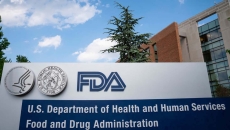AI regulation
The Agency says AI can transform multiple aspects of healthcare, but it is difficult to fully oversee and regulate the technology without the assistance of all sectors involved.
The Act is the world's first major law for AI implementation and provides regulations for high-risk applications of the technology, including its use in healthcare.
Harjinder Sandhu, Microsoft CTO of health platforms and solutions, discusses the readiness of OpenAI for use in healthcare, bias within AI and GPT-4, and recommendations for regulators.
Amazon Web Services chief medical officer Dr. Jared Saul relays how AWS helps the life sciences sector leverage AI and machine learning for drug discovery, concerns around AI/ML use in healthcare, and the value of regulating the technology.
Bryant Godfrey, partner and cochair of healthcare and FDA practice groups at Foley Hoag, discusses the various agencies regulating AI in healthcare, potential inconsistencies in frameworks and expectations for regulation in the coming year.
Sara Shanti, partner at Sheppard Mullin, discusses the intersection of healthcare and technology, how to establish trust and transparency within AI, and questions she receives pertaining to virtual therapy, particularly in mental health.
Brigid Bondoc, partner and life sciences attorney at Morrison Foerster, discusses government priorities pertaining to federal regulation of AI, where complications may arise, and concerns she has heard related to policy decisions.
Jay Rughani, investment partner at a16z, discusses 2023 events, predictions for digital health funding in 2024 and proper AI regulation to avoid stifling innovation.
Thomas Hallisey, HANYS digital health strategy lead, discusses appropriate regulations on digital health at the state and federal levels and the need for continuous management as technology moves from automating healthcare to augmenting it.
The American Medical Association uses “augmented intelligence,” not “artificial intelligence,” as the tech is meant to support, not replace, people, said Dr. Jesse Ehrenfeld, president of the AMA. Still, new regulatory paradigms are needed.









